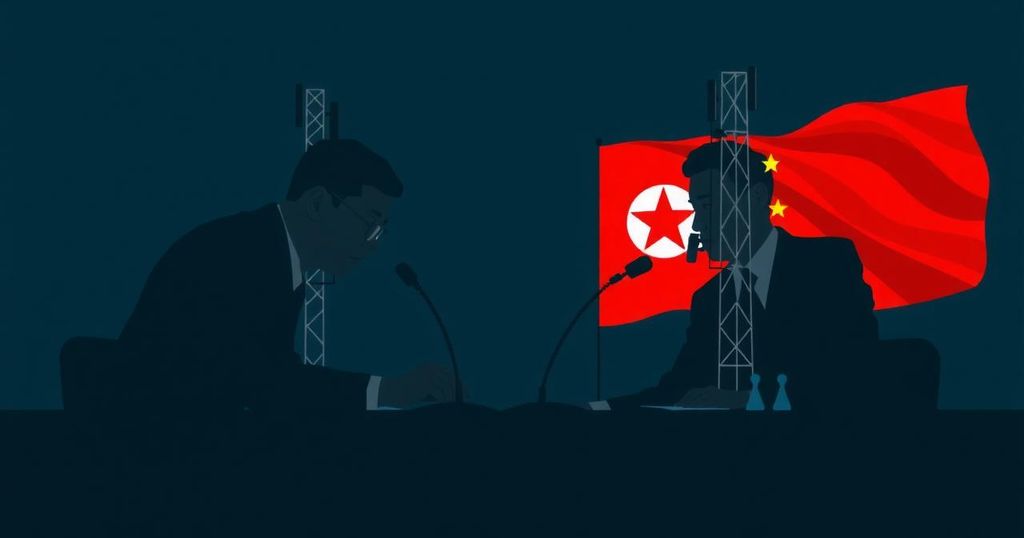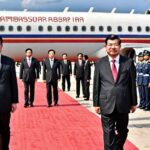Tensions Erupt in Sino-North Korean Relations Over Telecom Installations near Border
Recent tensions have surfaced in the historically complex relationship between North Korea and China, prompted by Beijing’s announcement of its intention to establish telecommunication facilities along their shared border. Analysts interpret this maneuvre as a potential means for China to enhance its influence over North Korea. The North Korean government has raised objections, indicating that these facilities may facilitate the transmission of FM radio signals into its territory.
In a formal complaint to the International Telecommunication Union (ITU), North Korea criticized China for failing to consult with it prior to advancing its plans, claiming this represents a violation of established ITU protocols. This complaint was issued following a disclosure by the ITU in June about China’s proposal to construct 191 telecommunication stations, with 17 located particularly close to the North Korean border.
North Korea’s communication highlights concerns that these stations, particularly those situated in Dandong, may interfere with its communications infrastructure. Although the ITU has not confirmed receipt of North Korea’s complaint, a representative of the organization stated that there is no formal obligation for either nation to consult each other prior to registering FM stations. However, the spokesperson underscored the importance of coordination to mitigate interference.
Experts such as Patricia Kim from the Brookings Institution have noted the unusual nature of North Korea’s decision to escalate its concerns to an international forum, rather than seek resolution through diplomatic channels with China, suggesting a notable downgrading of their alliance. Contrastingly, a spokesperson from the Chinese Embassy in Washington affirmed the longstanding cordial relationship between China and North Korea, asserting that such issues can be resolved through dialogue.
The deterioration in relations seems to correlate with North Korean leader Kim Jong Un’s deepening ties with Russian President Vladimir Putin, particularly following their meetings in mid-2023. This development has been accompanied by North Korea transitioning its state television broadcasts from a Chinese satellite to a Russian alternative. Moreover, recent tensions have arisen over North Korean workers in China, with demands for their repatriation following visa expirations coming to a head amidst differing timelines preferred by each party.
This strained dynamic may encourage China to employ the establishment of telecom facilities as a strategic move to maintain and exert its influence in North Korea amidst waning bilateral cooperation and increasing ties between North Korea and Russia. Furthermore, analysts highlight the possibility that these Chinese telecommunication developments are intended, at least in part, to disseminate Chinese political narratives within North Korea, counterbalancing Beijing’s own apprehensions regarding the North Korean regime’s growing leanings toward Moscow.
Additionally, North Korea’s objections to the Chinese telecom presence may stem from fears that such facilities will allow external information to penetrate its tightly controlled information landscape. The regime maintains strict measures against unauthorized media, which has resulted in severe penalties, including imprisonment and hard labor, for individuals found accessing foreign content. Experts such as Martyn Williams and Michael Swaine suggest that the regime’s complaints concerning the telecom stations reveal a recognition of its inability to fully control its information boundaries within an increasingly interconnected landscape.
In conclusion, the ongoing dispute regarding these telecommunication facilities not only illustrates the fragility of Sino-North Korean relations but also underscores North Korea’s acute sensitivity to outside influences. With each country navigating a shifting geopolitical environment, the implications of this discord may have lasting effects on the regional balance of power and the flow of information into North Korea.








Post Comment